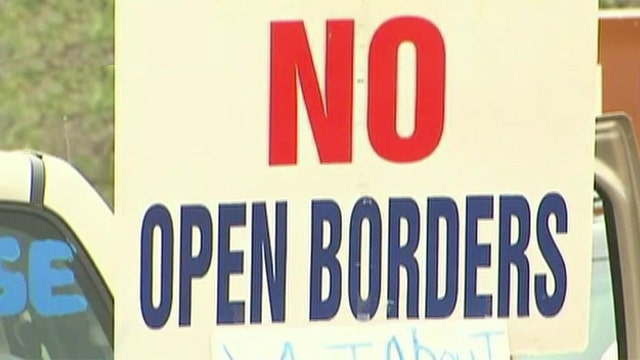Arizona judge upholds controversial immigration law
Law allows police to question status of possible illegal immigrants
An Arizona judge upheld the state’s landmark immigration law on Friday after challengers failed to show that police would enforce the statute differently for Latinos than it would for people of other ethnicities.
The ruling could signal the end of the case and give a victory to backers of the 2010 law. U.S. District Court Judge Susan Bolton dismissed the challenge and upheld provisions previously ruled on by appeals courts.
Bolton upheld the law’s controversial requirement that police, while enforcing other laws, can question the immigration status of those suspected of being in the country illegally. The Supreme Court also upheld the requirement, but the law’s challengers continued to try to get it overturned at a lower-level court.
Opponents have “not produced any evidence that state law enforcement officials will enforce SB1070 differently for Latinos than a similarly situated person of another race or ethnicity,” Bolton wrote.
It’s unclear whether challengers will appeal Bolton’s ruling. Karen Tumlin, an attorney representing a coalition of civil rights groups, said in a statement they would “evaluate all legal options moving forward.”
Former state Sen. Russell Pearce, who sponsored the initial legislation, applauded Bolton's judgment.
"She made it very clear the law was written very carefully not to be a race issue. It's not a racial law," Pearce said.
The judge did make one change to the law. She permanently barred a section of the law that prohibited people from blocking traffic when seeking or offering day labor services on the streets. An appeals court previously also held Arizona couldn’t force such provisions. Opponents argued that day labor rules unconstitutionally restrict the free speech rights of people who want to express their need for work.
Arizona's frustrations over federal enforcement of the state's border with Mexico spawned a movement nearly a decade ago to have local police confront illegal immigration. Several such laws — including the state's ban on immigrant smuggling and automatic denial of bail to people in the country illegally who are charged with certain crimes — have since been thrown out by the courts.
The Associated Press contributed to this report.





